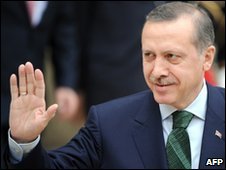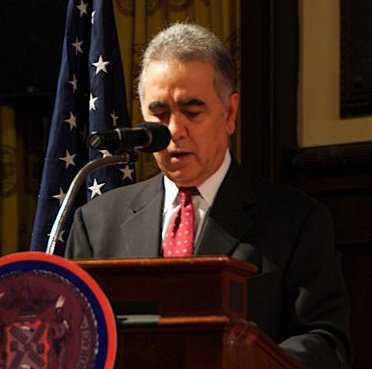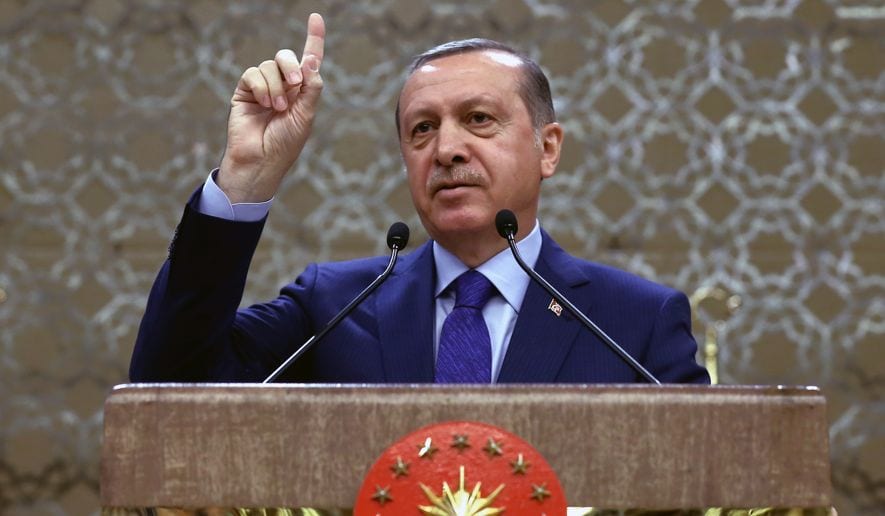Harking back to Armenia in 1915 will only drive modern Turkey into China’s arms
Norman Stone
The Times
March 8, 2010
The best thing said about the Armenian tragedy was a sermon delivered in the main church in Constantinople in 1894, more than 20 years before it happened. Patriarch Ashikyan had this to say: “We have lived with the Turks for a thousand years, have greatly flourished, are nowhere in this empire in a majority of the population. If the nationalists go on like this [they had started a terrorist campaign] they will ruin the nation.”
That Patriarch was quite right, and the nationalists shot him (and many other notables who were saying the same thing).
Now a US Congressional committee has had its say, by voting to recognise as “genocide” the mass killing of Armenians by Turkish forces that began in 1915, during the First World War.
Is the committee right? When the First World War broke out there were Armenian uprisings and the Patriarch’s fears were realised. The population in much of the territory of today’s Turkey was deported in cruel circumstances that led to much murder and pillage.
But genocide? No, if by that you mean the sort of thing Hitler did. The Armenian leader was offered a job in the government in October 1914 to sort things out (he refused on the ground that his Turkish was not up to it). The Turks themselves put 1,600 men on trial for what had happened and executed a governor. The British had the run of the Turkish archives for four years after 1918 and failed to find incriminating documents. Armenians in the main cities were not touched. Documents did indeed turn up in 1920, but they turned out to be preposterous forgeries, written on the stationery of a French school.
You cannot really describe this as genocide. Horrors, of course, happened but these same horrors were visited upon millions of Muslims (and Jews) as the Ottoman Empire receded in the Caucasus and the Balkans. Half of its urban population came from those regions and, in many cases, the disasters of their families occurred at Armenian hands.
Diasporas jump up and down in the politics of the United States — as an American friend says of them, when they cross the Atlantic, they do not change country, they change planet.
Braveheart is, for the Scottish me, a dreadful embarrassment. I have to explain to Kurdish taxi drivers that the whole film is wicked tosh that just causes idiots in Edinburgh to paint their faces and to hate the English, whereas there cannot be a single family in Scotland that does not have cousins in England.
But what will be the effect of the resolution in Turkey? The answer is that it will be entirely counterproductive. Yes, the end of the Ottoman Empire was a terrible time, as the end of empires generally are: take the Punjab in 1947, for instance.
Disease, starvation and massacre carried off a third of the population of eastern Turkey, regardless of their origin. But of all the states that succeeded the Ottoman Empire, Turkey is by far the most successful; you just have to look at its vital statistics to see as much, starting with male life expectancy which not so long ago was a decade longer than Russia’s.
Turkey is in the unusual position of doing rather well. She has survived the financial mess, her banks having had a drubbing some years before, and exports are humming. The Turks are not quite used to this, and this shows with the present Government, which (as the Prime Minister’s unfortunate anti-Israeli outburst at Davos a year ago showed) can on occasion be triumphalist.
This Government has been remarkably successful, not least in getting rid of the preposterous currency inflation that made tourists laugh, but it should not be allowed to forget the bases of Turkey’s emergence: the strength of the Western connection, the link with the IMF, the presence in the West of tens of thousands of Turkish students, many of them very able.
However, every Turk knows that, during the First World War, horrible things happened, and for Congress to single out the Armenians is regarded in Turkey simply as an insult.
The Turkish media is full of tales about the resolution, and there has been a great deal of dark muttering about it. There are Turks who agree that the killings amounted to genocide, and there has been an uncomfortable book, Fuat Dundar’s The Code of Modern Turkey, as some of the government at the time did indeed think of ethnic homogeneity (though not the killing of children).
But the dominant tone is more or less of contempt: who are these people, to orate about events a century ago in a country that most of them could not find on the map? It all joins with resentment at US doings in Iraq, and in the popular mind gets confused with the Swiss vote against minarets or Europe’s ridiculous admission of Greek Cyprus to their Union.
In practice the Turks are being alienated, and will be encouraged to think that the West is doing another version of the Crusades, that “the only friend of the Turk is the Turk”, and other nationalist nonsense of a similar sort. Nowadays Turkey does not need the Western link as before: trade and investment have been switching towards Russia and Central Asia; the Chinese are quite active in Ankara. Is that what we want to achieve, in a country that is otherwise the best advertisement for the West that anyone could have imagined back in 1950?
Norman Stone is Professor Emeritus of Modern History at the University of Oxford and head of the Russian-Turkish Institute at Bilkent University, Ankara
============================================================
Norman Stone
Vikipedi, özgür ansiklopedi
Git ve: kullan, ara
Prof. Dr. Norman Stone (d. 1941 Glasgow, İskoçya) Yakınçağ’da Orta ve Doğu Avrupa tarihi konularında uzman İskoç tarihçidir.
Babasının savaşta ölmesi üzerine Glasgow Academy’ye burslu olarak kabul edildi.[1] 1959-1962 yılları arasında Cambridge’de okuyan Stone, master çalışlmasını 1962-65 yıllarında Viyana ve Budapeşte’de, Orta Avrupa Tarihi üzerine yaptı. 1965’ten itibaren Cambridge’de Rus ve Alman Tarihi okutmanlık yaptıktan sonra Trinity College’de çalıştı. 1984’te Oxford’da Modern Tarih profesörü oldu. 1984-1997 yılları arasıda Oxford Üniversitesi’nde yakınçağ tarihi konusunda profesör olarak ders verdi. Daha sonra Bilkent Üniversitesi’nde görev yaptı. Hala Bilkent Üniversitesi’nde göreve devam etmektedir.
Norman Stone’un Wolfson Ödülü’ne layık görülen The Eastern Front 1914-1917 (1975) dışınndaki eserleri: “Hitler” (1980), “Europe Transformed 1878-1919” (1983) ve “The Atlantic Revival 1970-1990” sayılabilir. Norman Stone’un bilimsel çalışmalarının odak noktasını, geçmiş ve günümüzdeki Rus-Türk ilişkileri oluşturmaktadır.
1985’e kadar Britanya basınında sürekli yorumlarda bulundu. Aynı zamanda Frankfurter Allgemeine Zeitung ve The Wall Street Journal gazetelerinde yazdı. 1987-1992 yılları arasında The Sunday Times gazetesinde düzenli köşe yazarı olarak makaleler yazdı. 1987-1990 yılları arasında İngiltere Başbakanı Margaret Thatcher’a dış politika danışmanlığı yaptı.
Norman Stone; Almanca, Rusça, Macarca, Lehçe, Fransızca ve Türkçe biliyor. Stone,[2] yaşamını Türkiye ile İngiltere arasında geçirmektedir.
Yayımlanmış eserleri
- The Eastern Front, 1914-1917 (1975), ISBN 0-340-12874-7
- Hitler (1980), ISBN 0-340-24980-3
- Europe Transformed, 1878-1919 (1983), ISBN 0-00-634262-0; 2nd ed. (1999), ISBN 0-631-21507-7
- Czechoslovakia: Crossroads and Crises, 1918-88 (1989), ISBN 0-333-48507-6
- The Times Atlas of World History (1989), ISBN 0-7230-0304-1 (ed.)
- The Other Russia (1990), ISBN 0-571-13574-9, Michael Glenny ile
- World War One: A Short History (2007), ISBN: 1846140137 Allan Lane
Referanslar
- ^ Millard, Rosie (5 August 2007) Britain’s a terrible bore, that’s why I left, The Times.
- ^ Turkish delights, The Times.
Dış bağlantılar
- Russia – Getting Too Strong for Germany
![Turkish PM Erdogan says Israel is 'threat to peace' 3 Israeli Deputy Foreign Minister Danny Ayalon meeting Turkish Ambassador Ahmet Oguz Celikkol, captioned "the height of humiliation" in Israeli newspaper Israel Hayom [Image: Lior Mizrahi/Israel Hayom]](http://newsimg.bbc.co.uk/media/images/47602000/jpg/_47602916_ayalon226.jpg)








